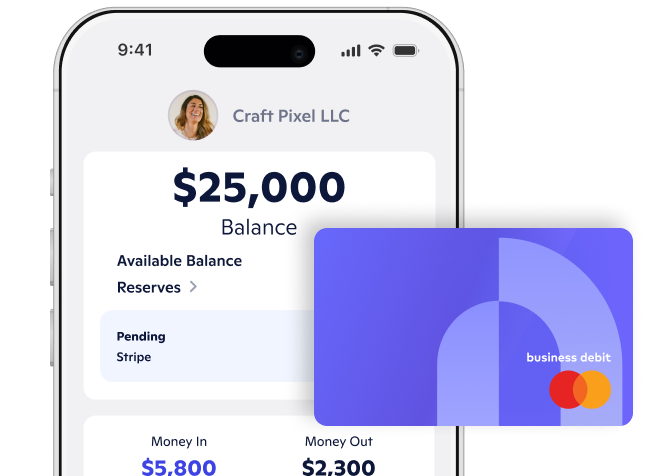
ven though the ultimate goal of search engine optimization is to get more traffic, there are a lot of moving parts to it.
New businesses face challenges from stronger, more authoritative websites. But you can still get a leg-up on the competition if you do things right.
Below are some ways small businesses can track SEO for success:
Understanding goals and conversions
Keeping a clear goal of what you want for your small business SEO is critical. All your search engine optimization efforts should be based on a clearly-defined objective of what you want your website to achieve.
Understanding the value of each qualified lead can help you track the metrics you need to maximize your campaign. When it comes to setting SEO goals, the more specific you get, the more you are able to track and evaluate progress while making the necessary changes.
If you're working on your own site, keep track of the above-mentioned goals so you have detailed data to work with. And if you're doing this for a client's site, ask them the right questions about their business so you'll know the exact strategy to implement.
Measuring the right metrics in line with your goals
Once you've established a goal for your site, you can determine the metrics you want to track from your visitors. Everything from how long they spend on your site to how willing they are to fill in a form can be tracked and improved if necessary. A few metrics that are usually tracked to gauge a visitor's interaction with your site are:
Bounce rate
This shows the percentage of visitors who click to a page, then leave without checking out the other pages on the site. Basically it tells you how often a user clicks the back button when visiting a page.
Duration spent on page
If you have a long article or blog post, you can track how engaged readers are based on how long they spend on that page. You can then tweak or update the article to improve its relevance to the target audience. Try to increase the time a visitor spends on your more important pages, especially if it's long-form content.
Conversion rate
On most e-commerce sites, you need to track sales conversions or customer account creation. Conversion rates are also useful for tracking newsletter sign-ups on a blog for example. The number of conversions should be divided by the total number of unique visits to know the exact success rate of converting a visitor on a tracked page.
Analyzing search volume
There is valuable data to be gained from knowing what a visitor does once they reach your site. But it's equally important to know how they discovered your site. By using a tool like Google Analytics or similar website tracking tools, you can uncover valuable insights on how your website is ranking in the search engines.
Google Analytics can be overwhelming to use in the beginning. But overcoming that learning curve is useful for understanding your site's traffic so you know the appropriate action to take. You probably won't have much data if your site is new, but over time, some of the data that you can observe includes the following:
Tracking marketing campaigns
If you do paid advertising as well as SEO, you can isolate and track different areas of your marketing efforts. This helps you understand which area you should focus on depending on ROI and which campaigns are not producing favorable results. This applies to your link-building efforts as well as you can track referral links from other sites.
Overall traffic and keyword rankings
Once your site has some authority and has been indexed for some time, you'll want to know the overall traffic it's getting and the keywords that visitors are typing to find your site. This helps you better structure your content, focus on increasing your position in the search engine results and create more content that you'll likely rank for.
Click-through rate
Your website visitors from SEO are mainly people who click through to your site in the search results. Being ranked highly helps, but ideally you want to optimize your site's meta title and description so that you entice people to visit your site over the other results that appear.
SEO metrics of your site and the competition
Analyzing your own site and making sure you optimize it for the right SEO goals is important. But it's also necessary to check out your competition to see how well they are performing from an SEO standpoint.
You can check your competitors' domain authority (DA), keyword rankings and backings by using a tool like Moz.
Doing so will allow you to make a calculated decision on where to focus your SEO efforts. You do not want to give yourself impossible odds if the chosen keywords in your niche are too competitive.
Do a SEO site audit
For a site to continually do well with SEO, perform a site audit every 6 months. This is where you can evaluate how your SEO strategies are performing, fix errors if you find them, uncover opportunities and generally improve your site's SEO health. A few of the main things to look for are:
Are your pages properly indexed?
In the early stages, you probably won't run into any errors as you have little content. As your site grows, however, you might encounter errors as you edit and update or move your pages. If you've installed Google's Search Console on your site, you'll get notified of these errors once Google crawls your site.
Page speed
Your website's speed will affect SEO as well as how users browse your site. A slow page will turn people off and discourage them from exploring your site further. Using a content distribution network (CDN) to deliver your content is one way to make sure your site's pages load faster for your visitors.
Content relevance
Depending on your niche, content on your site might get outdated or you may need to improve it over time. Adding richer, visually appealing content will make your site stand out from its competitors. You might need to analyze your site on a page-by-page basis or audit the most important pages.
Final words
Your SEO success hinges on several tasks working together to form part of a greater plan, like cogs in a machine. The above strategies will work for all websites and will benefit any small business.






